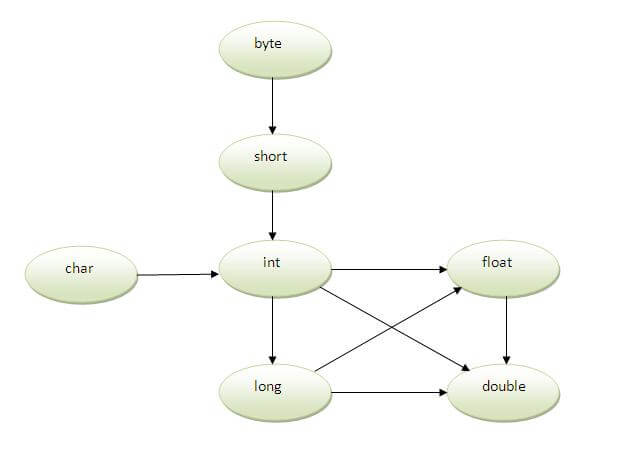Method Overloading in Java
If a class have multiple methods by same name but different parameters, it is known as Method Overloading.
If we have to perform only one operation, having same name of the methods increases the readability of the program.
Suppose you have to perform addition of the given numbers but there can be any number of arguments, if you write the method such as a(int,int) for two parameters, and b(int,int,int) for three parameters then it may be difficult for you as well as other programmers to understand the behaviour of the method because its name differs. So, we perform method overloading to figure out the program quickly.
Advantage of method overloading?
Method overloading increases the readability of the program.
Different ways to overload the method
| There are two ways to overload the method in java |
|
In java, Methood Overloading is not possible by changing the return type of the method.
1)Example of Method Overloading by changing the no. of arguments
In this example, we have created two overloaded methods, first sum method performs addition of two numbers and second sum method performs addition of three numbers.
class Calculation{
void sum(int a,int b){System.out.println(a+b);}
void sum(int a,int b,int c){System.out.println(a+b+c);}
public static void main(String args[]){
Calculation obj=new Calculation();
obj.sum(10,10,10);
obj.sum(20,20);
}
}
Output:3040
2)Example of Method Overloading by changing data type of argument
In this example, we have created two overloaded methods that differs in data type. The first sum method receives two integer arguments and second sum method receives two double arguments.class Calculation2{void sum(int a,int b){System.out.println(a+b);}void sum(double a,double b){System.out.println(a+b);}public static void main(String args[]){Calculation2 obj=new Calculation2();obj.sum(10.5,10.5);obj.sum(20,20);}}
Output:21.040Why Method Overloaing is not possible by changing the return type of method?
In java, method overloading is not possible by changing the return type of the method because there may occur ambiguity. Let's see how ambiguity may occur:because there was problem:class Calculation3{int sum(int a,int b){System.out.println(a+b);}double sum(int a,int b){System.out.println(a+b);}public static void main(String args[]){Calculation3 obj=new Calculation3();int result=obj.sum(20,20); //Compile Time Error}}int result=obj.sum(20,20); //Here how can java determine which sum() method should be calledCan we overload main() method?
Yes, by method overloading. You can have any number of main methods in a class by method overloading. Let's see the simple example:class Overloading1{public static void main(int a){System.out.println(a);}public static void main(String args[]){System.out.println("main() method invoked");main(10);}}Method Overloading and TypePromotion
One type is promoted to another implicitly if no matching datatype is found. Let's understand the concept by the figure given below:As displayed in the above diagram, byte can be promoted to short, int, long, float or double. The short datatype can be promoted to int,long,float or double. The char datatype can be promoted to int,long,float or double and so on.Example of Method Overloading with TypePromotion
class OverloadingCalculation1{void sum(int a,long b){System.out.println(a+b);}void sum(int a,int b,int c){System.out.println(a+b+c);}public static void main(String args[]){OverloadingCalculation1 obj=new OverloadingCalculation1();obj.sum(20,20);//now second int literal will be promoted to longobj.sum(20,20,20);}}Output:4060Example of Method Overloading with TypePromotion if matching found
If there are matching type arguments in the method, type promotion is not performed.class OverloadingCalculation2{void sum(int a,int b){System.out.println("int arg method invoked");}void sum(long a,long b){System.out.println("long arg method invoked");}public static void main(String args[]){OverloadingCalculation2 obj=new OverloadingCalculation2();obj.sum(20,20);//now int arg sum() method gets invoked}}Output:int arg method invokedExample of Method Overloading with TypePromotion in case ambiguity
If there are no matching type arguments in the method, and each method promotes similar number of arguments, there will be ambiguity.class OverloadingCalculation3{void sum(int a,long b){System.out.println("a method invoked");}void sum(long a,int b){System.out.println("b method invoked");}public static void main(String args[]){OverloadingCalculation3 obj=new OverloadingCalculation3();obj.sum(20,20);//now ambiguity}}Output:Compile Time ErrorOne type is not de-promoted implicitly for example double cannot be depromoted to any type implicitely.


No comments:
Post a Comment